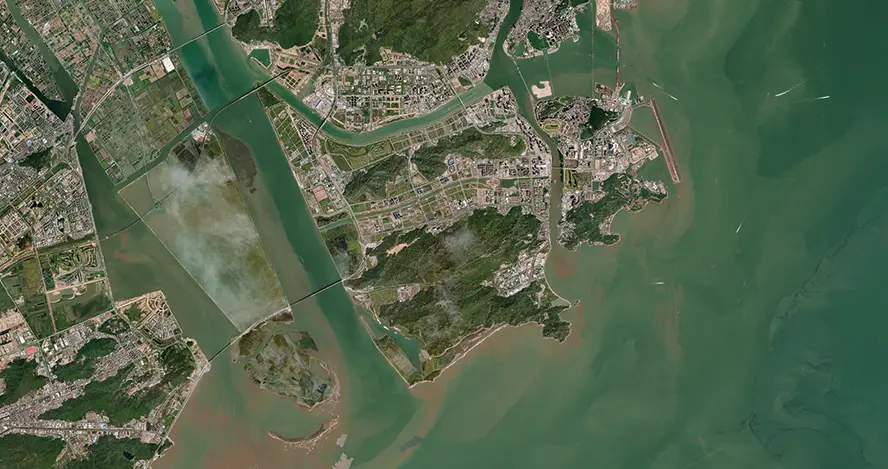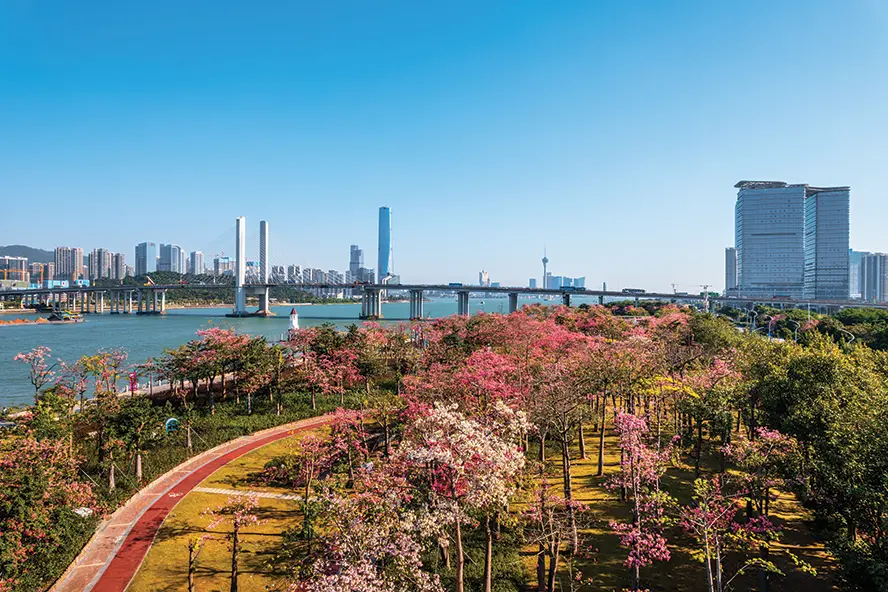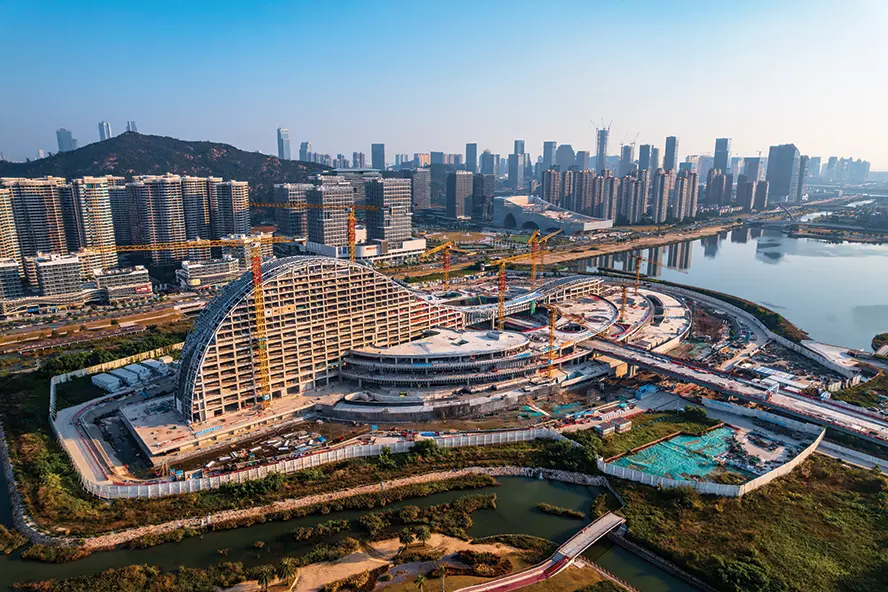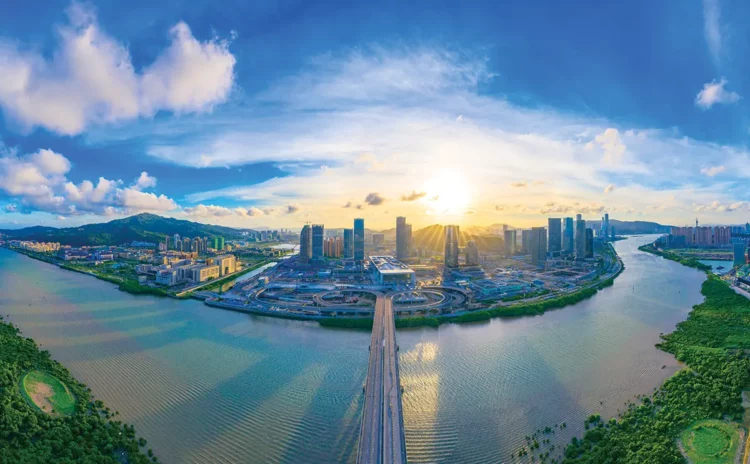Despite receiving policy support from China’s central government, Hengqin is still struggling to fulfil its potential as a business hub and to fully integrate with neighboring Macau. IAG examines the key challenges and what must be done to ensure Hengqin can flourish.
Hengqin Island, referred to as the “back garden” of Macau, has experienced rapid development since the establishment of the Hengqin Guangdong-Macao In-Depth Cooperation Zone in September 2021. However, after three-and-a-half years of development, the potential and existing challenges of the Cooperation Zone have sparked widespread discussion.
 To understand the uniqueness of the Cooperation Zone, it is essential to first clarify its distinctive management system. The area adopts a dual “first line” and “second line” management model. The “first line” between Macau and Hengqin focuses on regulating the movement of people – goods enjoy relatively free circulation – while the “second line” prioritizes the control of goods with unrestricted movement of people.
To understand the uniqueness of the Cooperation Zone, it is essential to first clarify its distinctive management system. The area adopts a dual “first line” and “second line” management model. The “first line” between Macau and Hengqin focuses on regulating the movement of people – goods enjoy relatively free circulation – while the “second line” prioritizes the control of goods with unrestricted movement of people.
This innovative management approach is jointly operated by the Guangdong and Macau governments under the principle of “joint consultation, construction, management and sharing”, aiming to achieve institutional breakthroughs.
China’s central government has provided the Cooperation Zone with policy support, including tax incentives, cross-border financial facilitation and multi-sector innovative cooperation. Its strategy is centered on promoting moderate economic diversification in Macau, with a focus on nurturing the following key areas: technological research and development, high-end manufacturing, cultural tourism, convention and exhibition, modern finance and traditional Chinese medicine.
The effects of these policies are gradually becoming evident. Following the introduction of multiple-entry visa measures for Macau residents and mainland tour groups last year, the passenger flow at the Hengqin Port reached 22.8 million in 2024, with vehicle traffic exceeding 2.4 million, reflecting year-on-year increases of 36% and 24% respectively.
 The surge in human traffic has sparked an investment boom, with Macau’s concessionaire companies accelerating their strategic layouts.
The surge in human traffic has sparked an investment boom, with Macau’s concessionaire companies accelerating their strategic layouts.
SJM Holdings, for instance, has invested HK$5.94 billion (US$743 million) to acquire a nine-story office building adjacent to Hengqin, which it is converting into a three-star hotel. Morgan Stanley analysts believe this sort of move could help alleviate Macau’s lack of sufficient hotel room inventory. However, it’s worth noting that during the 2024 National “Two Sessions”, Macau representatives paid greater attention to deeper issues such as the legal system of the Cooperation Zone.
The current legal framework presents significant challenges. Despite the implementation of special border management, the Cooperation Zone still operates under the mainland’s legal system. Macau businesses must adapt to differences in cross-border taxation and financial regulation, with inefficiencies in cross-border remittances being particularly prominent. Although a series of financial assistance measures that were implemented in 2023 have improved transaction convenience, obstacles to capital flow between mainland and Macau banks have not been fully resolved.

Population structure issues also hinder development. Despite Hengqin’s land area being 2.5 times larger than Macau (105 square kilometers), its permanent population remains severely inadequate. Incentives such as employment subsidies for Macau youth (RMB 4,000 per month) as of July 2024 have had minimal impact, with only 15,000 Macau residents living in Hengqin and just 5,000 employed there. Macau’s limited local population and job market pressures make it challenging to attract enough talent in the short term.
Industrial competition is intensifying the development challenges. Beyond souvenirs and the gaming industry, Macau brands lack market competitiveness in fields like traditional Chinese medicine and cultural creativity. The Cooperation Zone must not only face homogeneous competition from nearby cities like Zhuhai and Guangzhou but also overcome cross-border institutional barriers.
Looking ahead, Hengqin needs to further clarify its positioning, strengthen policy execution and promote industrial upgrading to achieve a true win-win situation for Macau-Hengqin cooperation. At the same time, Macau enterprises should build on their gaming industry competitiveness while actively expanding into emerging fields such as high-tech and cultural creativity, enabling sustainable development utilizing the Hengqin platform.





























